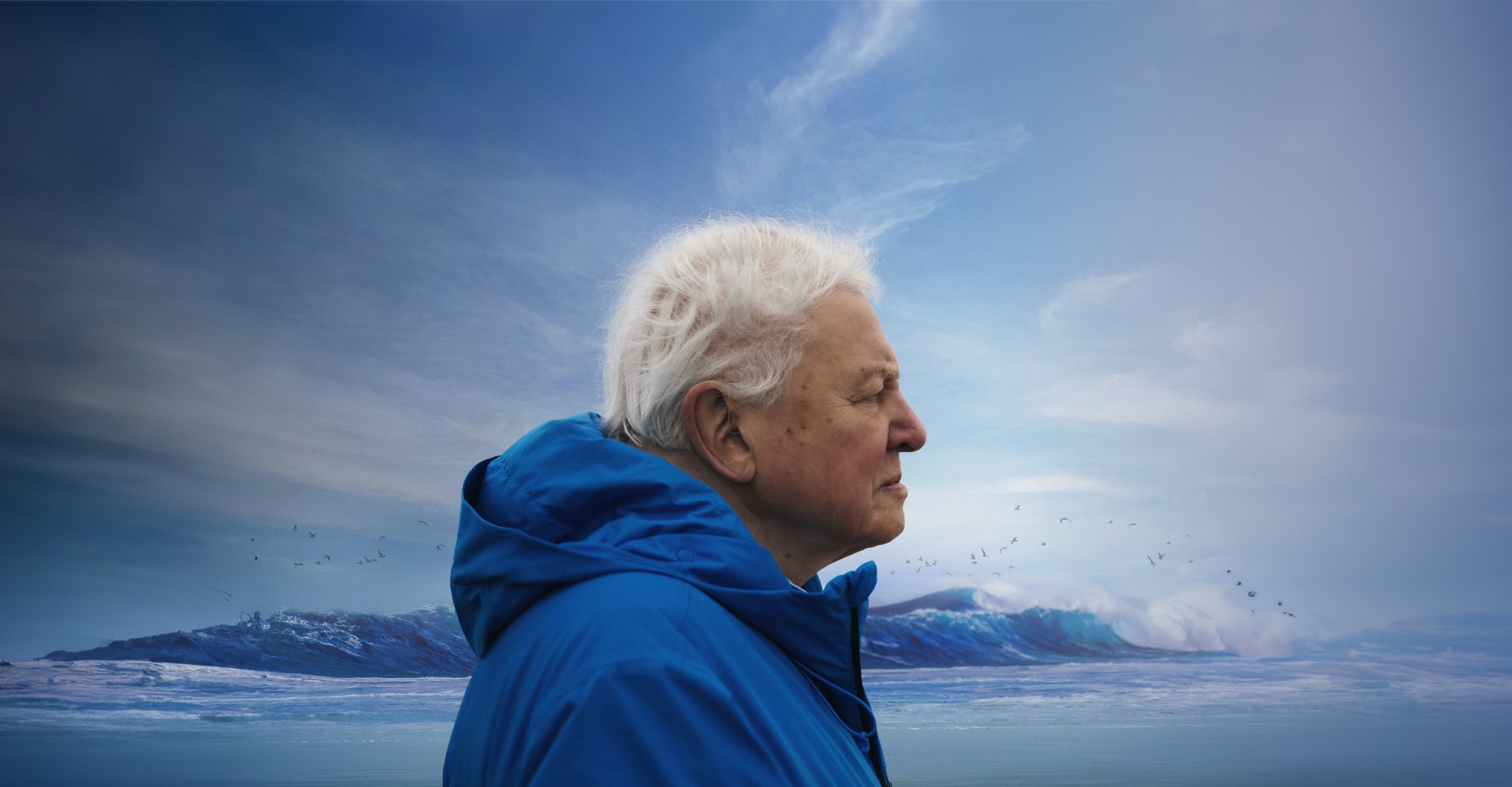Big steps towards ocean protection
A packed audience went away entranced and thoughtful on an evening in mid June, when Three Rivers District Council organised a showing of the film Ocean with David Attenborough at Watersmeet in Rickmansworth.
With its spectacular photography and compelling narrative, the film highlighted the stunning array of wildlife in our oceans and the importance it plays in human life.
The Problem of Industrial Fishing
While fishing has been an essential part of human life since it began – and sustainable fishing is very possible – the film also revealed just how far industrial fishing has developed, with every part of the globe’s seas populated with vast trawlers, as far as Antarctica.
Some scoop up and process tonnes of fish and krill, stripping out the habitats of fish, birds and sea mammals. Others drag highly-destructive bottom-trawling equipment across the ocean floor, capturing or crushing everything in their wake and often discarding all but one target species. These practices, which supply our thriving seafood, pet-food and supplement industries, are threatening to tip the delicate balance of ocean life, wiping out species and increasing carbon emissions dramatically.
The High Seas Treaty
But it’s not all disaster. Also in June, countries came together at the United National Ocean Conference and 51 of them ratified the High Seas Treaty - a legally-binding document which aims to grant protected status to 30 per cent of the world’s oceans lying outside of national boundaries. Currently, only 1.2 per cent are protected. Once 60 countries ratify the treaty, it can be implemented and there is a real sense that many countries are now waking up to ocean destruction.
Meanwhile, the UK has proposed it will expand a ban on bottom-trawling to cover 18,500 square miles of the UK’s offshore areas that are already designated as protected. There is a government consultation on this subject until 1st September.
How You Can Help Our Oceans
UNESCO’s Ocean Literacy Toolkit (https://oceanliteracy.unesco.org/ocean-resources/) provides concise information on the vital role the ocean plays in our lives overall and in climate change.
Where To See Ocean
If you didn’t catch Ocean in cinemas, you can watch it on streaming channels National Geographic,
Disney + and Hulu.


